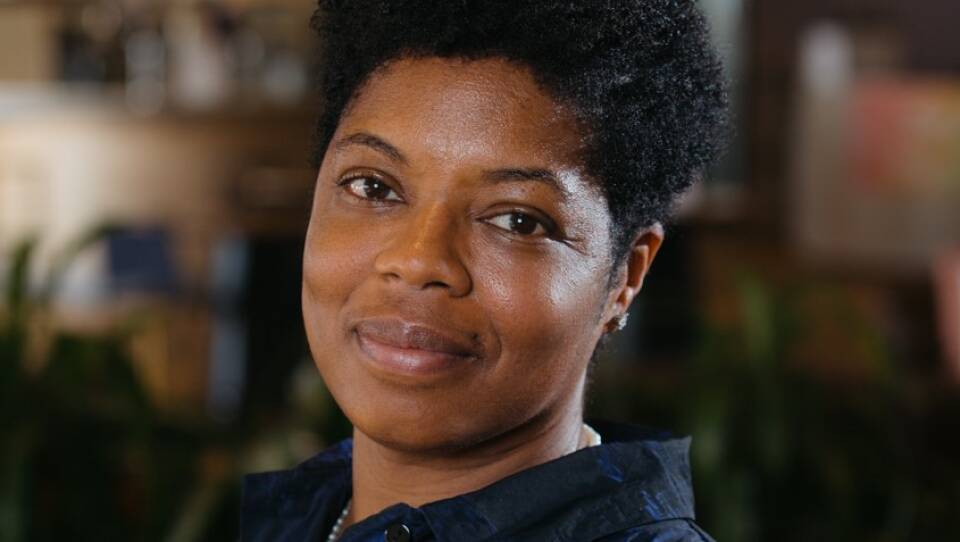Friday marks the start of the Mass. Black Expo , an event hosted by the Black Economic Council of Massachusetts that aims to bring together Black business leaders and promote equity in business. Nicole Obi, BECMA’s president and CEO, joined Morning Edition hosts Paris Alston and Jeremy Siegel to talk about the conference and the state of business equity in the commonwealth. This transcript has been lightly edited.
Jeremy Siegel: Tell us about what's going on today and this weekend.
Nicole Obi: So BCMA is hosting our 2022 Mass. Black Expo. This is where we're showcasing really Black-led businesses and organizations, and as well as our allies that are helping us to close the Massachusetts racial wealth gap.
Paris Alston: And so this coincides with the Boston Cannabis Week, which we've been discussing here every day this week. And I know there are a number of businesses in different industries you all are going to be highlighting at the expo. But I am curious, with folks like Armani White of Mass. EON and Kobie Evans of Pure Oasis and others, how would you describe the state of the cannabis industry right now and how Black entrepreneurs fit into that industry?
Obi: We are thrilled to be able to feature panel on Friday on the equity and the state of the cannabis industry, because BECMA has been working for several years now and advocating for greater equity in this space, especially given all of the the hurt and the damage that's been done to the Black community related to illegal cannabis industry. So on our first day, we'll really get into the details about how Black entrepreneurs can participate in this emerging industry and speak specifically about what the new legislation that's been passed has in store for being more equitable and open for opportunities for Black entrepreneurs.
Siegel: Taking a step back and looking more broadly across industries here. You stepped into your role at BECMA in January. At the time, you highlighted policy and advocacy work that was needed to boost equity for Black-owned businesses in Boston. Earlier, you mentioned some of the barriers to that. What has happened in that time since you stepped into your position in January, and also what still needs to happen?
Obi: The policy and advocacy work that we do really underpins our four pillars for helping to close the racial wealth gap — not just in Boston, but across the entire state. So those pillars are ownership, entrepreneurship, placement and commerce. And we lead the way in executing on those efforts through our policy efforts, whether it is in the cannabis industry being more inclusive, in the Mass. climate industry that's emerging. We're also pushing for equity and access, transparency around procurement, and other opportunities that we know are very important for Black business owners, as well as our community members who are looking to increase homeownership to really get the support that they need through legislative actions.
Alston: So, Nicole, we spoke to you here on GBH shortly after you stepped into your role at BECMA. And back then you talked about how Black businesses play a crucial role in closing the racial wealth gap, and that if Massachusetts can do that, the state economy would grow by $25 billion. Now, I know that closing the racial wealth gap in Massachusetts can't happen in a matter of months. But tell us a little bit about the strides that have been made to do so.
Obi: We know that most of the Massachusetts Black-owned businesses are on the smaller end of the scale, meaning that the majority earn less than $1,000,000 in revenue. And we also know that small businesses drive the Massachusetts economy. So we're very focused on helping and supporting those businesses. We as part of a coalition, the Coalition for Equitable Economy and MassINC. are releasing a survey of 3,400 small businesses from across the commonwealth. Five hundred of those respondents were Black-owned businesses.
And what we found is that, again, the lack of access to capital still remains the number one issue for Black-owned businesses. And so for BECMA, and the work that we're doing, we're focused on really helping to open those doors, whether it's through our policy work or whether it's through the programing that we do with our partners. Even at our expo, we're going to have three different events focused on access to capital. Some of the other things that we have learned from that new survey is that there are new growth opportunities that we want to make sure that we're supporting our businesses and taking advantage of.
"The lack of access to capital still remains the number one issue for Black-owned businesses."-Nicole Obi, CEO of the Black Economic Council of Massachusetts (BECMA)
For example, we know that several — at a rate of two and a half times — white business owners are going to be leaving their businesses in the next five years. And that creates a growth opportunity for Black-owned, Black-led entrepreneurs to expand their businesses, as well as those Black professionals who are in careers right now that aren't fulfilling and are interested in starting their own businesses. They may be able to do that through growth, through acquisition. I'm really excited about that.
Siegel: So someone's listening right now who is a business owner or somebody looking to get into business who might be experiencing some of those equity barriers that you've highlighted, or is looking for a community, what are the next steps that they can take? Where should they go?
Obi: Well, they should definitely come to our expo on Friday and Saturday of this week. The Saturday session will be all virtual. Friday will be in-person at the Boston Convention Center. And the reason that we want folks to come out is that it's important to not try to address these systemic issues all by yourself. It's better to be part of a collective and part of a collaborative effort that's working on multiple fronts from a policy perspective, from a support perspective, and just being in a community of other business owners who have either been where you are or are where you are, and organizations that are there to support you. So we really encourage anybody that's interested in growing their business, starting a business, to get involved with BECMA and the other organizations that we partner with, just for the purpose of making sure that we can know who you are, what you need, and support you.
Alston: You know, Nicole, more and more we're seeing organizations like yours — and also I'm thinking of Boston While Black, shoutout to Sheena Collier — convene the state's top Black business leaders and business leaders of colors together in these spaces and to be in touch and to be in community with one another. What does it mean for you to see that?
Obi: Sheena is going to be with us and we've invited several other Black leaders, as you mentioned. And I think it's incredibly important. Representation matters. You have to have key players in these decision-making roles that are pushing on multiple fronts. No one organization is going to be able to do everything that needs to be done. We need to work collaboratively. And I'm really proud to be part of a set of leaders that are working together in our own respective areas to help improve access and equity and opportunity.









